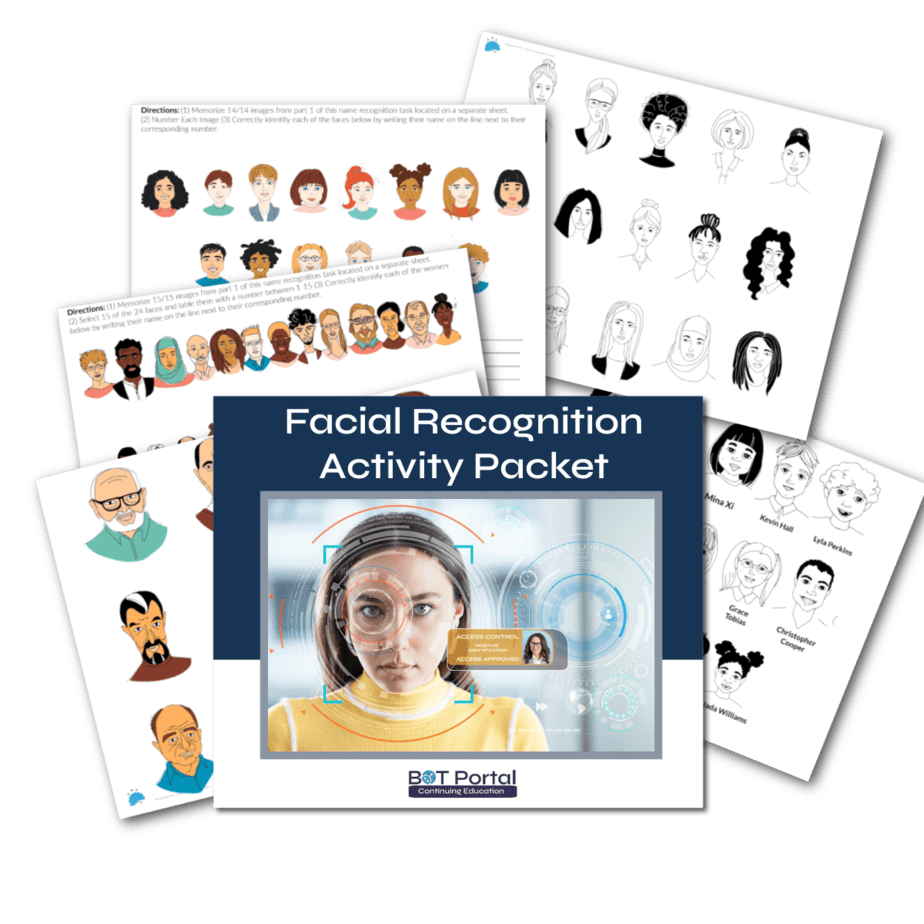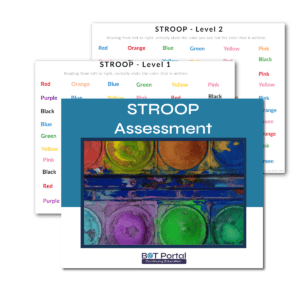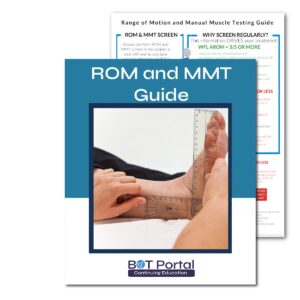Description
Social Memory
Face Recognition Activity
Download the pdf for “Social Memory Face Recognition” also called name recognition for a patient tool to use during session for cognitive remedial therapy. These original face recognition worksheets will aid your client in using internal memory strategies to recall names of new and familiar persons in their social circles. Did you know that the only way to improve this ability is by practicing this SPECIFIC skill and firing the networks in this particular area of the brain? This packet of names/faces will help you build an extensive executive function-based remedial plan of care that will help your client improve working memory, short term memory, and conversion of these functions into long term memory.
More Information on Social Memory
Social memory refers to the ability to recall information about people, relationships, social events, and interactions from past experiences. It involves remembering details such as names, faces, personal histories, and shared experiences with others. Social memory plays a crucial role in building and maintaining relationships, navigating social interactions, and forming a sense of identity and belonging within social groups.
Key Aspects of Social Memory:
- Recognition of Familiar Faces and Names: Social memory allows individuals to recognize familiar faces and recall associated names, allowing for the establishment and maintenance of social connections. This ability is essential for greeting acquaintances, recalling past interactions, and fostering a sense of familiarity and trust.
- Recollection of Personal Histories: ~Enables individuals to remember personal histories, anecdotes, and shared experiences with friends, family members, and peers. This includes remembering significant life events, milestones, and emotional moments that contribute to one’s identity and relationships.
- Understanding Social Contexts: ~ helps individuals understand social contexts and navigate interpersonal relationships effectively. It involves remembering social norms, expectations, and cultural customs, as well as recalling past interactions with specific individuals in different settings.
- Formation of Social Bonds: ~ facilitates the formation and maintenance of social bonds by allowing individuals to remember past interactions, shared interests, and common experiences with others. This contributes to the development of trust, empathy, and rapport within social networks.
- Adaptation to Social Changes: ~ allows individuals to adapt to social changes over time, such as shifts in relationships, group dynamics, or social roles. By recalling past experiences and relationships, individuals can adjust their behaviors, expectations, and interactions accordingly.
- Sense of Identity and Belonging: Social memory contributes to the formation of a sense of identity and belonging within social groups. Remembering shared experiences, traditions, and connections with others reinforces one’s sense of identity and strengthens social bonds within communities.
- Emotional Connections: Social memory is intertwined with emotional experiences, as individuals often recall past interactions and relationships with associated emotions. Positive memories may evoke feelings of happiness, nostalgia, or affection, while negative memories may trigger sadness, anger, or regret.
- Cognitive Processes Involved: Social memory relies on various cognitive processes, including attention, encoding, storage, retrieval, and recognition. Individuals must pay attention to social cues, encode relevant information into memory, store it effectively, and retrieve it when needed during social interactions.
What’s included?
12 pages of color and black and white visuals of different faces and names
Helpful Links
Check out BOT Portal: Resource Site for Occupational Therapy Students and Practitioners




